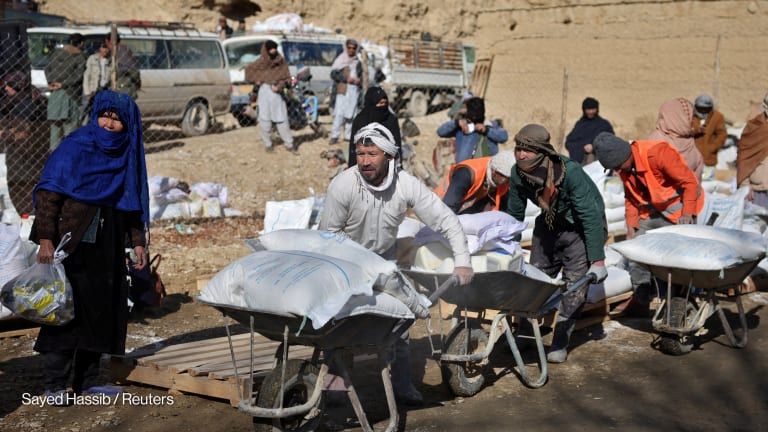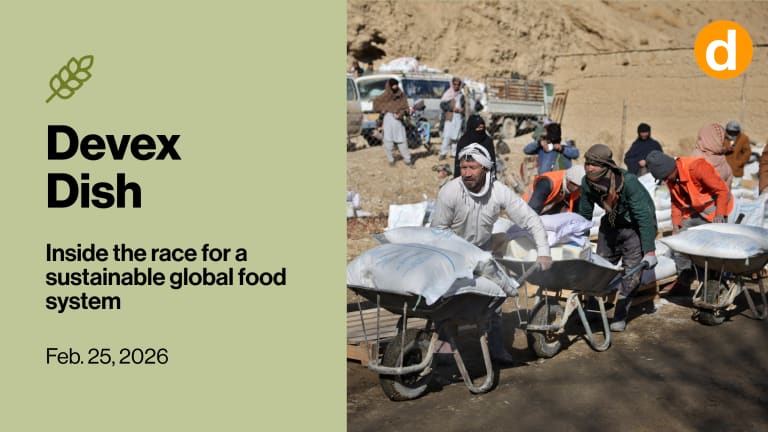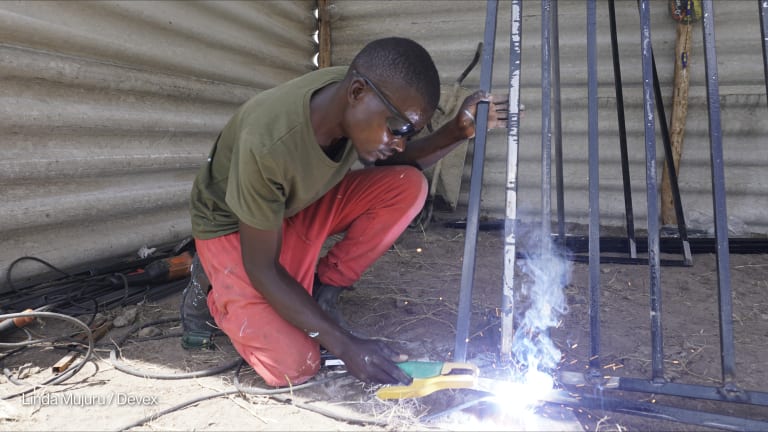
Across Afghanistan, thousands of aid workers are scrambling to find a way out of the country. As the Taliban become the de facto rulers, many people with experience in the development and humanitarian sectors feel threatened; working for an international organization is not seen as favorable in the Taliban’s eyes, especially for women and minority groups.
Devex spoke to three individuals who are so far unsuccessfully trying to get visas for themselves and their families so they can leave. Although countries such as Canada and India have opened channels to receive Afghans seeking to flee, the process remains opaque.
“I’m knocking on every door, and most of them are closed,” the daughter of an aid worker told Devex. Others spoke about the work they had done to contribute to the development of the country, wondering if it now puts them in harm’s way.
Here are glimpses into their lives as they navigate the complex process of leaving Afghanistan behind — often without the support of the organizations that once employed them.
“If other organizations can help their staff, why can’t the U.N.? I’m terrified for all of us.”
— Arifa, a program officer for a U.N. agency in HeratTheir names have been changed to protect their identities. These conversations have been edited for length and clarity.
Zoya, 22
Boston
Daughter of an aid worker
I’m an Afghan student in the U.S., and I’m desperately trying to get my family out of Afghanistan. I have five sisters and one brother, and they are in Kabul. My father has been an aid worker for the last 15 years; he works with local organizations that are funded by USAID [the U.S. Agency for International Development], the United Nations, and other agencies.
He doesn't have the cleanest record as far as the Taliban is concerned. For years, his job was that of a program manager implementing education programs for girls in Taliban-led areas. He encouraged me and my sisters to study. For the Taliban, he’s a father supporting his daughters to get an education — not just any education, [but] a Western education.
We’re Hazara, and we’re an ethnic minority in Afghanistan, so that is a cause of worry too. Now we’re living in constant fear. My parents haven't left the house this whole week.
I love Kabul. I had so many hopes for it. I was even thinking of being the future president of the country. Nobody warned us that this was happening so quickly. Why did the people of Afghanistan not know this was going to happen? We would have started acting on it early.
The Taliban is trying to be on their best behavior because the world is watching them. But I do not trust this group. I simply want people to put themselves in my shoes and my father’s shoes and think about what they would want for their own family.
We have been trying to get a visa for the last three months. [My family was] supposed to leave for Pakistan in September, but now even that looks impossible. At this point, I’m knocking on every door, and most of them are closed. I feel so helpless and hopeless.
Samir, 38
Kabul
Contract worker at an international consultancy
I’m a research officer working on migration programs.
Nobody expected this [Taliban takeover] to happen so quickly. We thought it would take at least a few months. It all happened so fast; there was no time to plan.
My wife and three boys live in Herat. I wanted to bring my family to Kabul, but fighting erupted in Herat, so they couldn't come. I don’t dare to drive there, because the Taliban are everywhere on the roads. My wife is more worried about me and says I should leave the country. If I leave, I’ll leave for my family.
If they [the Taliban] put my name in Google, they will find that I used to work for international organizations. The Taliban are very intolerant — especially if you’re working with international organizations. They can’t differentiate between humanitarian orgs and intelligence and security agencies. Some of them are illiterate — they can't read and write even Pashto — and when they see something in English, they think we work for American organizations, so they must be targeted and punished.
Aid groups shift to emergency response as US leaves Afghanistan
Aid groups are seeing an influx of displaced people to Kabul, as they warn that humanitarian needs in Afghanistan are growing amid the collapse of the government and the Taliban takeover.
Nobody can trust them easily. They are emphasizing that they have changed, they are saying they will let girls go to school and women can work, but there is uncertainty about how long that will go on for. Everyone is confused and concerned.
I don't think the international community can help. My colleagues have been kind, they pray for us, but they can’t really do anything.
There is no door open for me.
Arifa, 26
Herat
Program officer at a U.N. agency
I’ve worked at a U.N. agency for three years. A few weeks ago, after half the American troops had left Afghanistan, my colleagues and I started to get scared about our future. We tried applying for visas for different countries, and everything was getting rejected. That’s when we approached the U.N., and we were promised that our office would secure visas for us and our family. It has been more than a month now, and we’re still waiting.
My father worked in the military. I worked for the U.N. If the Taliban come looking for us, I can’t tell what our fate will be. According to their law, girls and women should not work outside of home. I feel nervous, anxious, and hopeless; I cannot even step outside. We are just begging for any visa. We just want to relocate for a short time until the situation is normalized, for a few months.
I don’t know how long I can wait now. I don’t understand why there’s a delay in processing our visas. If other organizations can help their staff, why can’t the U.N.? I’m terrified for all of us.








